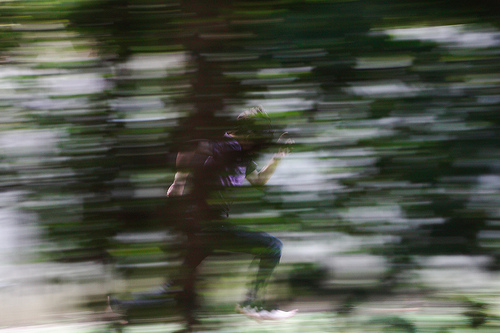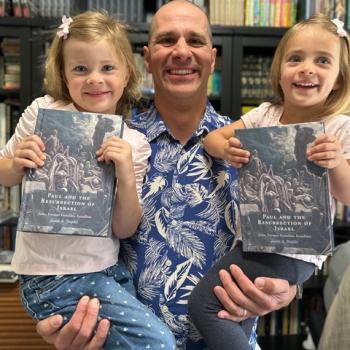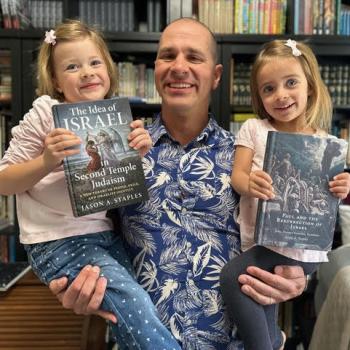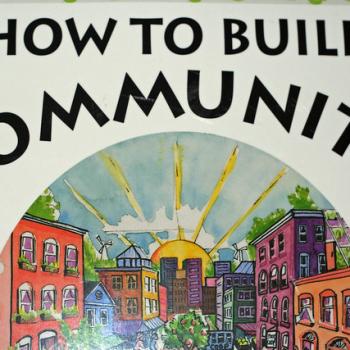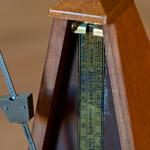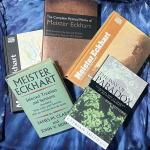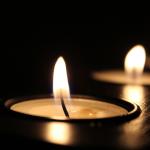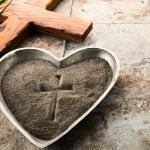My friend Jon Dephouse is a young, vital husband of a young, vital wife and father of two young, vital boys. He has a good sense of humor, and encourages and inspires the people who meet him. Jon loves music, coffee, and running triathlons. He is also a priest at Saint James’ Episcopal Church in South Pasadena, California.
Several months ago, Jon discovered that he has cancer. Jon’s cancer is an extremely rare and agressive sarcoma which is generally found in children. Yes, it is the same cancer for which the President of Venezuela, Hugo Chavez, is being treated.
Jon began a course of treatment a few months ago, and is scheduled to have surgery this month.
How are you, Jon? What can you tell us about your prognosis, and how your treatment is going? How do you feel in your everyday experience of this disease?
All things considered, I am doing quite well.
I feel relatively “normal” aside from a bit of fatigue. I am exercising almost every day. I am going out on dates with my wife, hanging out with my kids, and doing all the many daily things that I did prior to this diagnosis.
As I go along with the process of treatment, in our daily life I can almost get used to the reality of being “in treatment” that it becomes the new normal. I can easily forget what it feels like not to have this burden on my shoulders, or this burden on my rear end! (The tumor that I have is on my left gluteal muscle for those who don’t know.)
It’s hard to say what the prognosis is statistically, though I have many medical prognostic factors in my favor. One, the tumor is small and I found it early. Second, it seems to be responding to chemotherapy and radiation treatment. Although, the extent of response is difficult to measure precisely until it comes out via surgery at the beginning of February.
The most challenging prognostic fact of cancer, as many know, is guarding against the cancer “coming back.” And unfortunately, the doctors can never be absolutely certain that all has been cured. This reality helps to illustrate my daily experience with this disease.
I deal with fear/paranoia on some level every day. A wise person in my life before treatment began said to me, “the fear is the hardest part.” I think this is true. Our bodies can endure a lot; chemotherapy, radiation, chasing kids, exercising, whatever… But fear can be the most crippling obstacle to living well in the face of any trial. So I try to accept this fact honestly, and then draw on my resources of faith, health/wellness, and community order to daily choose to be hopeful and to envision the best possible result of this treatment process, which would be to be cured of course of this disease, and to be better, stronger, and deeper having gone through this experience.
How is your experience affecting Sarah Lynn and your sons, and the rest of your family?
It’s hard to see the extent to which this experience has affected our family.
The kids are functioning as they would under any circumstances. Josiah is 1, so he is too young to understand any of this process. Caleb is 6 and occasionally he asks us some questions about cancer, but all and all he doesn’t care that much about what I am going through, or at least he doesn’t clearly perceive the gravity of cancer treatment. I think this is fine with Sarah and me. We’re ready to follow his lead with any questions he might ask, or however he is processing things in his 6-year old world. The other day as I was putting him to bed, he said matter-of-factly to me, “Daddy, are you done with cancer yet?” I said no, not yet, and I offered to tell him more about it, but he didn’t really care to hear. He would rather have me tell him a story, as we always do before bedtime. Maybe this is how Caleb copes best; with life as normal and consistent as possible. As long as he has stories, a Lego supply, Nerf guns at his disposal, and friends to play with then all is well as far as he is concerned.
Sarah and I talk plenty together about cancer and cancer treatment, but we definitely have very parallel experiences of this disease. I have lots of active support cheering me on all the time, and I go to treatment each day and have the tangible sense in my physical body of how things are going. But she has to experience the helplessness of being a spouse in this process, and try to maintain some semblance of control and order when things feel so chaotic. It is a delicate dance for her to be the support she wants to be for me and at the same time to receive her own care for the unique fears and struggles she faces. She has been amazing though, and especially her keeping up of our blog www.bikingbeforedawn.blogspot.com. This experience is not easy for us, but we are taking it one day at a time, as the saying goes.
Thank you, Jon.
[Image by steve.garner32]


